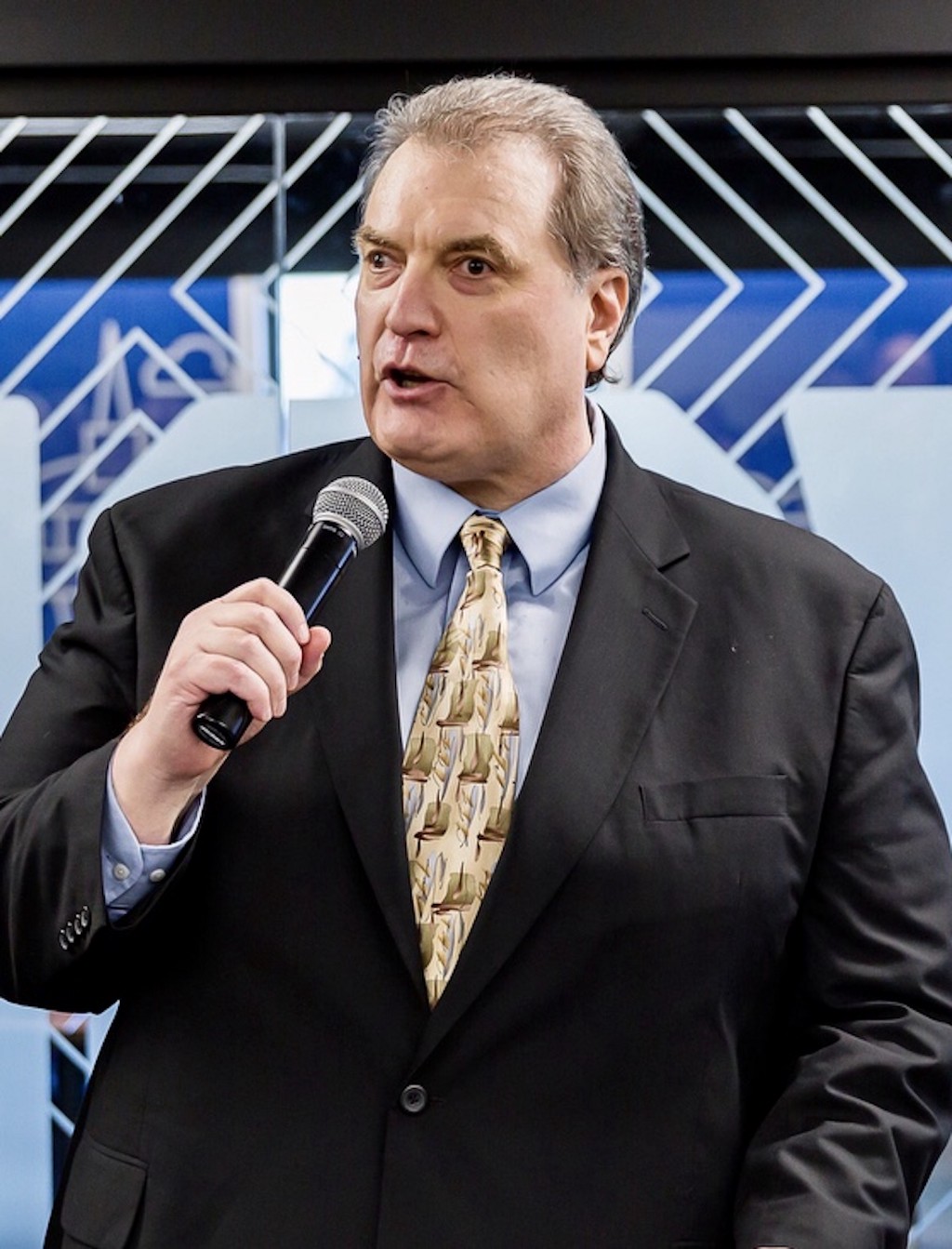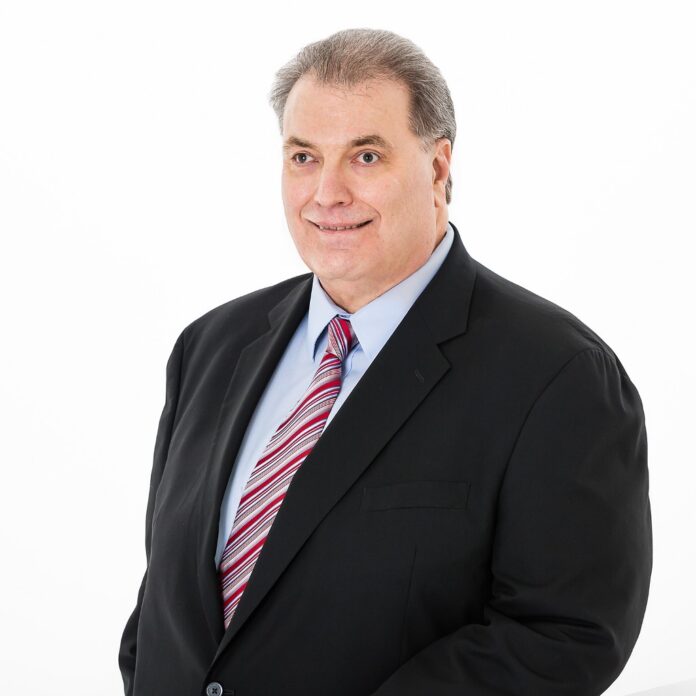We succeed and prosper by creating value in the lives of others. Everyone wants to make money, but in reality, the only people who make money work in the government mint and print currency. The rest of us have to earn money by creating more value in the lives of more people.
As part of my series about “authors who are making an important social impact”, I had the pleasure of interviewing Jim Stovall.
In spite of blindness, JIM STOVALL has been a National Olympic weightlifting champion, a successful investment broker, the President of the Emmy Award-winning Narrative Television Network, and a highly sought-after author and platform speaker. He is the author of more than 50 books, including the bestseller, The Ultimate Gift, which is now a major motion picture from 20th Century Fox starring James Garner and Abigail Breslin. Five of his other novels have also been made into movies with two more in production. His latest book, Passport to Success (which is co-authored by Greg Reid) was released in the summer of 2022 and is now available wherever books are sold.
For his work in making television accessible to our nation’s 13 million blind and visually impaired people, The President’s Committee on Equal Opportunity selected Jim Stovall as the Entrepreneur of the Year. Jim Stovall has been featured in The Wall Street Journal, Forbes, USA Today, and has been seen on Good Morning America, CNN, and CBS Evening News. He was also chosen as the International Humanitarian of the Year, joining Jimmy Carter, Nancy Reagan, and Mother Teresa as recipients of this honor.
Thank you so much for joining us in this interview series! Before we dive into the main focus of our interview, our readers would love to “get to know you” a bit better. Can you tell us a bit about your childhood backstory?
I grew up in Tulsa, Oklahoma where I make my home today. I am my parents’ third child. The first two died at a young age. My brother died of a lung disorder, and my sister died of leukemia. Anyone who has seen the movie, The Ultimate Gift, based on my novel, will remember the amazing performance by Abigail Breslin playing Emily who dies of leukemia. Obviously, that was not entirely fiction.
As a young man, my ambition in life was to be an All-American football player, and make my living in the NFL. During a routine physical to play another season of football, I was diagnosed with a condition that would cause me to lose my sight. I continued my athletic career as an Olympic weightlifting champion and have lived as a blind person throughout my adulthood.
When you were younger, was there a book that you read that inspired you to take action or changed your life? Can you share a story about that?
I’m embarrassed to admit as a best-selling author of more than 50 books–having 8 of them turned into movies–when I could read with my eyes, as many people read my books today, I don’t know that I ever read an entire book cover to cover. After losing my sight, I was introduced to the National Library for the Blind that makes books available in digital audio formats. I participated in a study over 30 years ago that measured how quickly people could learn to listen to audiobooks and retain the information. After the experiment was over, I continued listening to audiobooks faster and faster so that for many years I have read a full-length book every day. Becoming a reader made me want to become a writer.
Two of the books I listened to early in that process were Think and Grow Rich by Napoleon Hill and Acres of Diamonds by Russell H. Conwell.
Can you share the funniest or most interesting mistake that occurred to you in the course of your career? What lesson or take away did you learn from that?
Early in my speaking career, I was backstage at an arena event, and I was approached by a deaf man trying to communicate with me through a note he was holding up in front of my face. He was trying to find the front desk. What ensued was an absurd attempt to communicate with me talking and him pointing at his note. I’m not sure if he ever found the front desk, but I share this story often, and I’m always reminded that when we are faced with challenges, we can either laugh and find a way to succeed or cry and find an excuse to fail.
Can you describe how you aim to make a significant social impact with your book?
I believe, as one of my movie partners once said, “If you can tell a great story, you earn the right to share your message.” I could speak for an hour or write a long chapter about the power of persistence or I could simply refer to the story of the tortoise and the hare. Whether it’s a great movie or a great novel, stories stick with us and deliver emotion and impact which is our goal in Passport to Success.
Can you share with us the most interesting story that you shared in your book?
I believe the most interesting story element in Passport to Success is the way the main character Alex loses the love of his life, his career, and his home all in one day. He has to learn to accept the fact that he was the problem that created his circumstance so that he can become the solution to create his future.

What was the “aha moment” or series of events that made you decide to bring your message to the greater world? Can you share a story about that?
The idea of creating Passport to Success came from my co-author Greg Reid. He brought the overarching concept, and I was able to fill in a lot of the details for the individual chapters within the book.
Without sharing specific names, can you tell us a story about a particular individual who was impacted or helped by your cause?
With over 50 books in print, I hear from countless people around the world because I include my contact info within each of my books. The most meaningful feedback for me are the blind people or individuals with other physical challenges who read what I have written and are able to live extraordinary lives.
Are there three things the community/society/politicians can do to help you address the root of the problem you are trying to solve?
The cause outlined in our book, Passport to Success, is best served when:
1) Children are exposed to possibilities and potential at an early age.
2) Creativity and entrepreneurship are encouraged and rewarded.
3) Giving back is recognized as a cultural imperative and the natural way to live a successful life.
How do you define “Leadership”? Can you explain what you mean or give an example?
Leadership is nothing more or less than being worthy to be followed. We live in a world that, when it’s all said and done, there’s a lot more said than done. We need leaders who will act more and talk less.
What are your “5 things I wish someone told me when I first started” and why. Please share a story or example for each.
- We all have the right to choose. As a blind person, I came to understand that I can either be destroyed by a disability or understand that opportunities come disguised as problems and find the treasure beneath the surface.
- We are all one quality decision away from anything we want. We each must begin where we are and have confidence that the people, contacts, and connections we need will be made available to us as we travel toward our destiny. Otherwise, we will be waiting for all the lights to be green before we leave the house, and this never happens.
- We change our lives when we change our mind. I had to come to an understanding that the only opinion that mattered about me was the opinion I had of myself. So, if I controlled my mind, I controlled my future.
- The way we do anything is the way we do everything. We can’t pick and choose when to perform with excellence. We must approach every task as if our success depended upon it, because it does.
- We succeed and prosper by creating value in the lives of others. Everyone wants to make money, but in reality, the only people who make money work in the government mint and print currency. The rest of us have to earn money by creating more value in the lives of more people.
Can you please give us your favorite “Life Lesson Quote”? Can you share how that was relevant to you in your life?
Napoleon Hill said, “Every adversity, every failure, every heartache carries with it the seed of an equal or greater benefit.” Once I understood and embraced that concept, I realized that my blindness and any other life challenges were simply a pathway to bigger and better things.
Is there a person in the world, or in the US with whom you would like to have a private breakfast or lunch with, and why? He or she might just see this, especially if we tag them. 🙂
I would love to meet the baseball star Albert Pujols. As a blind person myself, I spend many days listening to baseball games on the radio. For over 20 years, Albert has both entertained and inspired me with the way he plays the game and the way he lives his life.
How can our readers further follow your work online?
Aside from reading Passport to Success, readers can get information at JimStovall.com and can correspond with me or receive my weekly syndicated column by requesting it via Jim@JimStovall.com People can also follow me on Twitter (@stovallauthor) or Facebook (@jimstovallauthor).
This was very meaningful, thank you so much. We wish you only continued success on your great work!
Social Impact Authors: How & Why Author Jim Stovall Is Helping To Change Our World was originally published in Authority Magazine on Medium, where people are continuing the conversation by highlighting and responding to this story.


